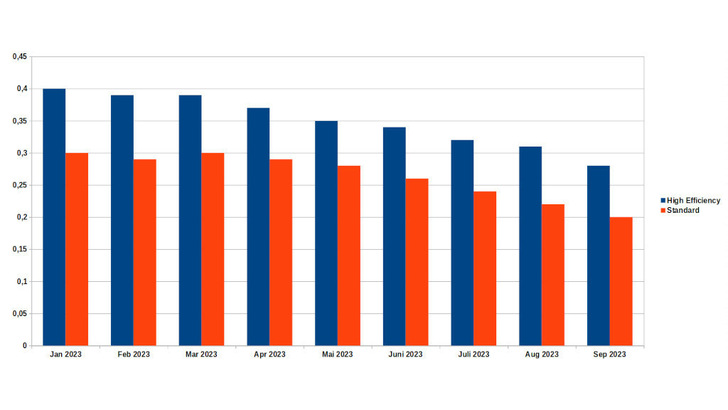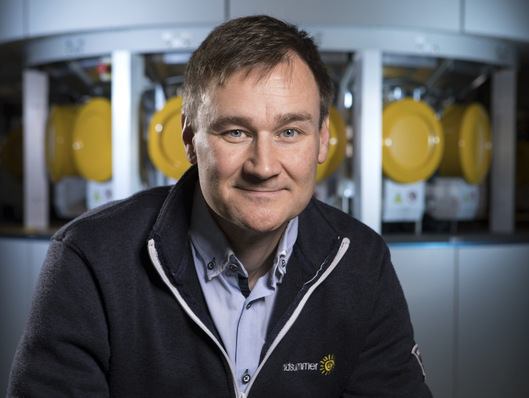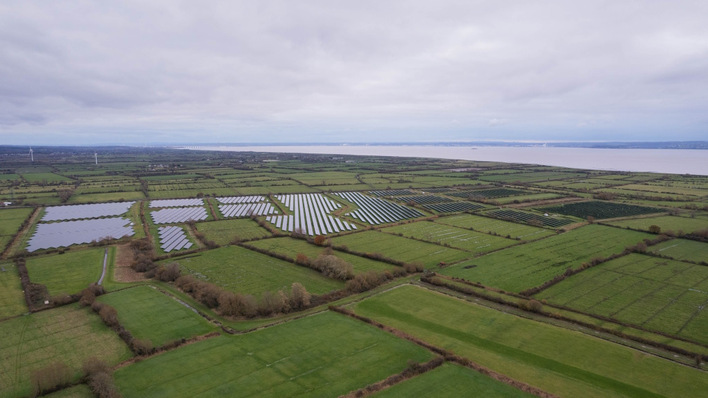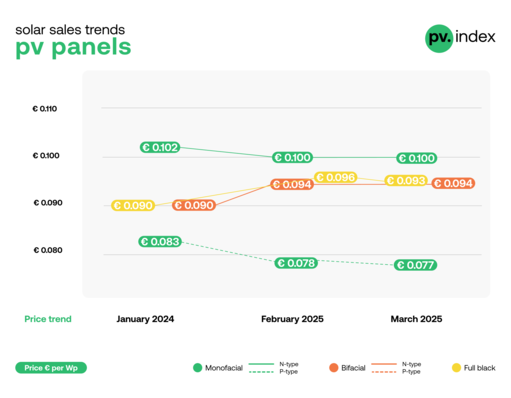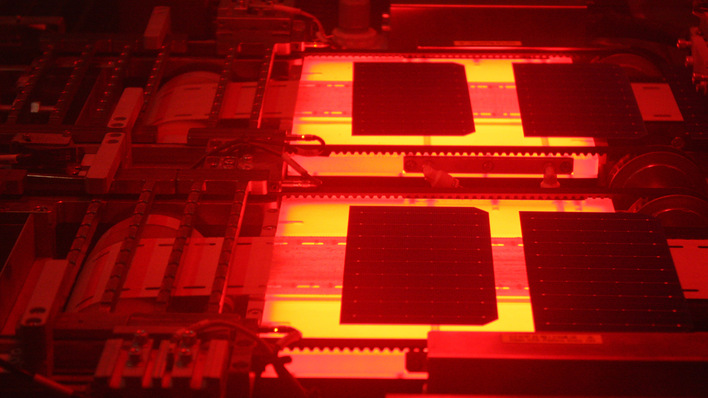In the past four weeks, prices for solar modules have dropped again. The jump is sharp by wholesale standards. Standard modules are currently being traded for an average of 20 cents per watt. That is a further nine percent below the already low prices of the previous month. Prices for the more powerful modules with modern cell technologies have even dropped by 9.7 percent. They can now be bought wholesale for an average of 28 cents per watt.
It's all about minimising damage
Module prices have thus reached a new all-time low since 2020. They are now also below the production costs of many manufacturers, knows Martin Schachinger, managing director of the online marketplace for solar components PV Xchange. He attributes this primarily to the overcapacities of manufacturers in Asia, who are currently producing lots of modules for the European market.
See also: More infrastructure for accelerating electrification
This also has something to do with a patent dispute over PERC technology. This forced many manufacturers to switch to Topcon technology. However, many continued to produce PERC for other markets. This drastically increased production capacity.
Inflation lowers demand
Furthermore, demand is currently falling again. On the one hand, this is because politicians have replaced natural gas with coal instead of renewables after gas prices shot up due to the Russian war of aggression on Ukraine. On the other hand, inflation is having an inhibiting effect on demand.
Goods pile up at wholesalers
The declining demand is leading to installers' order books being somewhat empty again. As a result, they are not taking delivery of pre-ordered modules and inverters on time. "The goods are increasingly piling up at the wholesalers and in the intermediate warehouses of the manufacturers," says Schachinger. "In the meantime, 40 to 100 gigawatts of unsold modules are said to be already in European warehouses, mainly in the greater Rotterdam area."
Also interesting: Record low PV prices endanger European manufacturing
But the lower prices have not quite reached the end customer yet. This is because many handicraft businesses still have expensive modules in their warehouses. This delays the passing on of the lower prices, which in turn prevents demand from being boosted. This is because many end customers are still waiting to get the systems at a lower price. (su/mfo)


